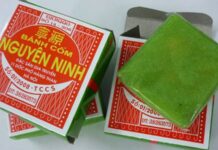The Third Day of the Third Lunar Month is a significant traditional holiday for Vietnamese people. On this day, many individuals observe certain customs and perform special rituals to bring good fortune and health to themselves and their families. So, what should one do and avoid during the Hàn Thực Tết holiday? Let’s explore the answers in the article below!
1 Things to Do During Hàn Thực Tết
Visit and Clean Ancestral Graves
Hàn Thực Tết is an occasion for descendants to express their gratitude to their ancestors. It is an important time to honor the cultural traditions of the nation. On this day, visiting and tidying up the graves of one’s ancestors is not only a way to pay respects but also a means to pass down spiritual values from past generations to the next.
Additionally, these visits help us comprehend the cycle of time and the importance of preserving and imparting cultural and spiritual values to future generations, as taught by our ancestors.
 Visiting and Cleaning Ancestral Graves
Visiting and Cleaning Ancestral Graves
Prepare a Proper Ancestral Offering
Preparing an offering for ancestors on Hàn Thực Tết is a traditional ritual that has been practiced since ancient times. It is seen as a beautiful and enduring tradition of the nation.
A well-prepared offering also demonstrates the gratitude of the descendants to those who built the family, the homeland, and the country. It is a way to honor moral and traditional values while fostering a sense of unity, love, and connection within the family.
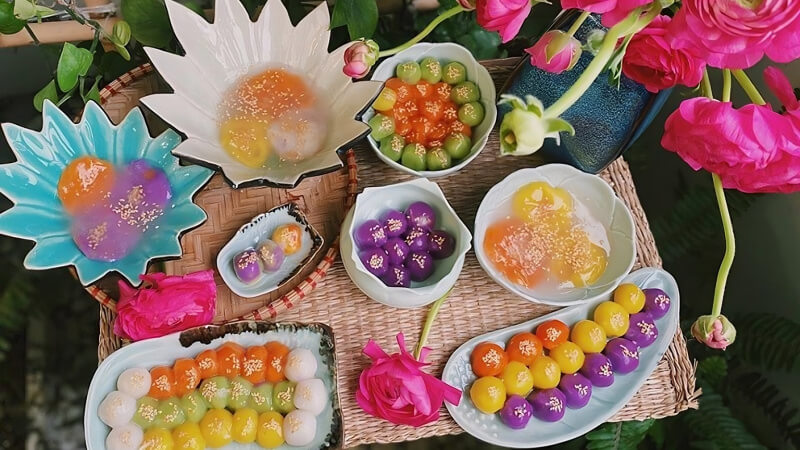 Prepare a Proper Ancestral Offering
Prepare a Proper Ancestral Offering
Remind Descendants of Their Roots
Hàn Thực Tết serves as a reminder for descendants to remember their roots and understand the history, culture, traditions, and moral values of Vietnam.
Today’s younger generation may not have the opportunity to hear stories or memories from deceased family members or relatives. Therefore, Hàn Thực Tết is a significant time for families to gather and share anecdotes and memories of their departed loved ones, honoring and remembering those who contributed to the family and society while passing down spiritual and cultural values to the next generation.
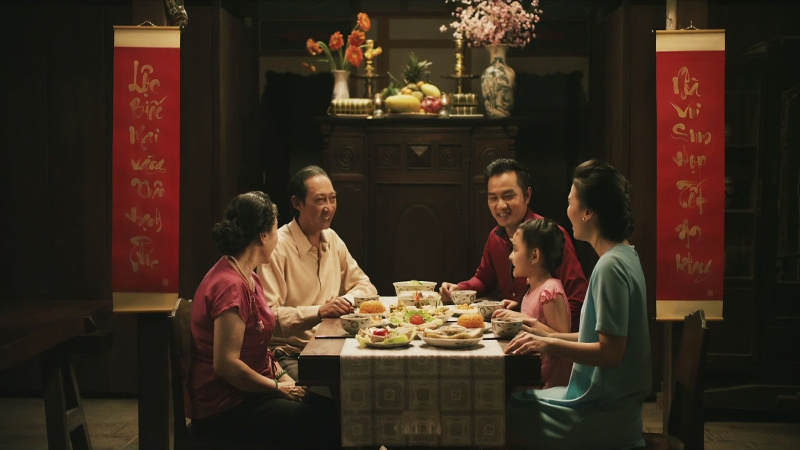 Remind Descendants of Their Roots
Remind Descendants of Their Roots
Speak Kind and Beautiful Words
Hàn Thực Tết is a grand festival and a time for families to reunite and honor their ancestors. On this day, it is best to avoid conflicts or meaningless arguments. If disputes arise, remain calm and seek harmonious resolutions.
Let’s not allow unfortunate or negative words to dampen the joyful and warm atmosphere of the family gathering. Instead, take the time to unite, share, and cherish meaningful moments, narrating stories of joy and simple yet loving aspects of life. This approach will foster closeness among family members and create a peaceful and meaningful Hàn Thực Tết celebration.
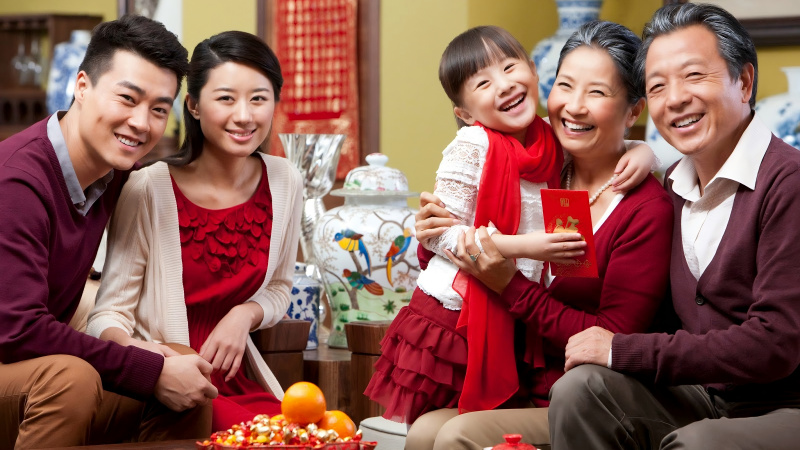 Speak Kind and Beautiful Words
Speak Kind and Beautiful Words
Dress Respectfully When Offering Incense
It is essential to wear formal and respectful attire when performing rituals, especially when offering incense to deities, Buddha, or the deceased. Some individuals may be careless about their dress during incense offerings, which can be seen as a sign of disrespect for the departed.
Therefore, whether it is Hàn Thực Tết or any other ceremonial day, one should dress neatly and respectfully to show reverence for the divine and the deceased.
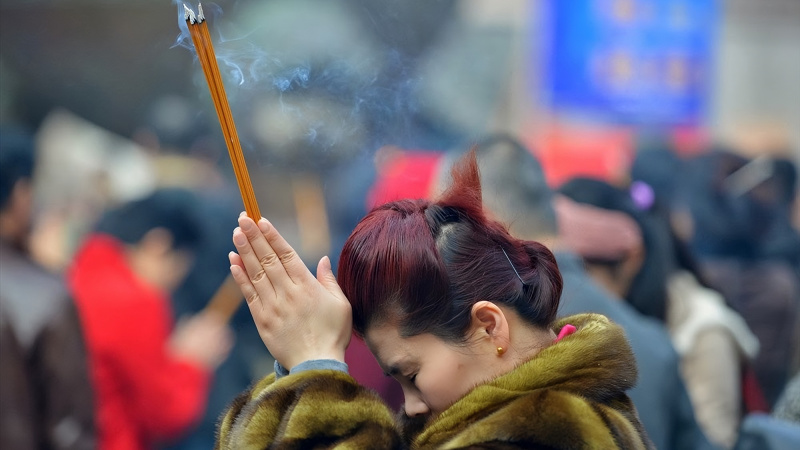 Dress Respectfully When Offering Incense
Dress Respectfully When Offering Incense
2 Things to Avoid During Hàn Thực Tết
Refrain from Lighting Fires Unless Necessary
One of the most common taboos during Hàn Thực Tết is lighting fires unless absolutely necessary.
In the past, it was believed that cooking with fire on this day would bring bad luck. However, this custom has evolved, and people can now use fire for cooking, but it is advisable to refrain from doing so unless necessary.
 Refrain from Lighting Fires Unless Necessary
Refrain from Lighting Fires Unless Necessary
Avoid Elaborate Feasts
According to folk beliefs, families should avoid preparing extravagant feasts during Hàn Thực Tết. Instead of lavish spreads, families should focus on ensuring a proper and simple offering, expressing their respect and reverence for the divine and the deceased.
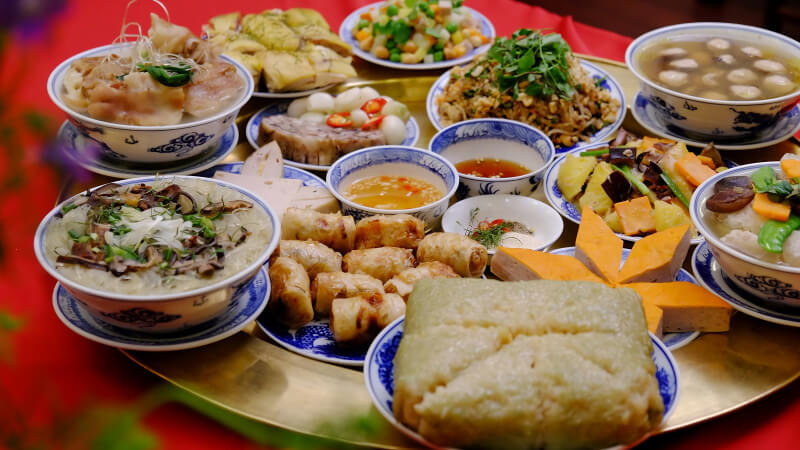 Avoid Elaborate Feasts
Avoid Elaborate Feasts
Avoid Moving to a New House
Folk beliefs suggest that moving to a new house on Hàn Thực Tết is inadvisable. It is believed that the spirits of the deceased family members watch over and protect their living relatives in the mortal realm. Moving houses on this day is thought to disrupt the peace of the spirits and bring bad luck to the family.
 Avoid Moving to a New House
Avoid Moving to a New House
Minimize Consumption of Salty Foods and Abstain from Killing Animals
On Hàn Thực Tết, it is recommended to refrain from eating salty foods. While not mandatory, adopting a vegetarian diet and avoiding killing animals are encouraged to facilitate the liberation of the souls of the deceased from the mortal realm. If a vegetarian diet is not feasible, families should at least avoid killing animals in their homes as a sign of respect for the departed.
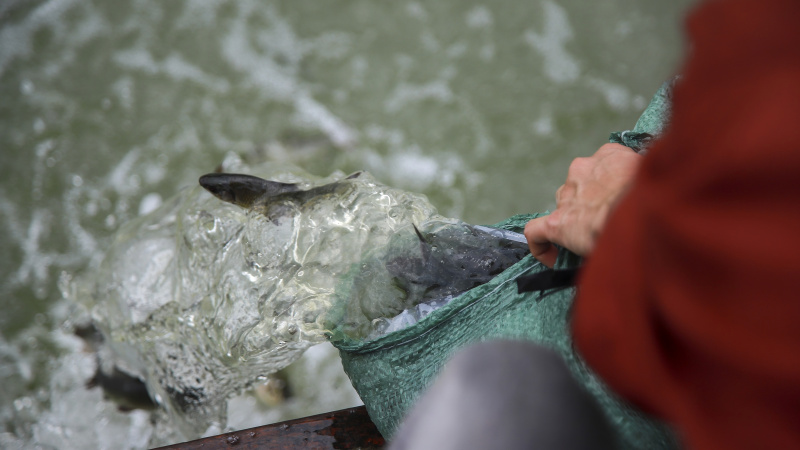 Minimize Consumption of Salty Foods and Abstain from Killing Animals
Minimize Consumption of Salty Foods and Abstain from Killing Animals
These are our suggestions for things to do and avoid during Hàn Thực Tết. We hope this article has provided you with valuable insights. Thank you for reading!
How to Choose the Best Air Conditioning Setting for a Humid and Damp Home
As the cooler temperatures of winter and spring begin to set in across the Northeast, families are confronted with an additional worry – how can they protect their homes from mold and dampness? While a dehumidifier is an effective measure, are there other air conditioning or cooling methods which can be used to ensure the air remains free of moisture and fungi?
Tips for Celebrating the Mid-Autumn Festival
As families come together under the light of the full moon to celebrate the Mid-Autumn Festival, it’s important to be aware of the ways to ensure good luck during the reunion holiday. This article will explore the dos and don’ts that will bring you and your family prosperity and health during the occasion.






























